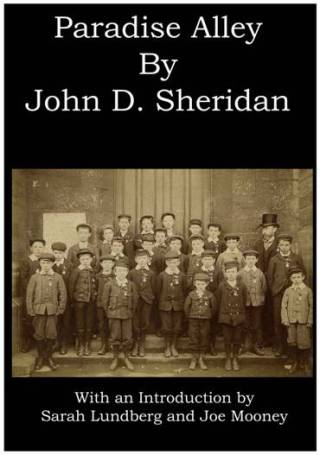Paradise Alley
by John D Sheridan was first published by Talbot Press, Dublin in 1945. This new edition, published by Seven Towers, includes an introduction by Sarah Lundberg and Joe Mooney with details from the real school records and memories of the pupils who were there – Tommy Devlin, Larry Kane, Maisie Lynch, Teresa Mason, and former Republic of Ireland kitman Charlie O’Leary.
Cited as the forerunner to Strumpet City by the Irish Times in 1980 Paradise Alley gives a close up view of the stark poverty in Dublin’s dockland slums in the first half of the twentieth century, as well as looking at the violence of the 1913 lockout, through the eyes of the school master Anthony Domican and the words of those around him, including his pupils. John D Sheridan backdrops the manure factory, coalyards and warehouses of the docklands with sailboats in Dublin Bay, and tempers the pain of everyday life with hope and his characteristic humour.
This publication sees a new departure for Seven Towers, venturing into literary tradition as well as local history.
Sarah Lundberg, publisher at Seven Towers says ‘When we first started Seven Towers we were very conscious that we were stepping into a long established and important literary tradition, and we hoped to honour this tradition’s history while also becoming part of its present and its future. This publication forms part of that, enabling us to bring part of Dublin’s literary tradition into the present, and stretching out non-fiction wings at the same time.’
This book is also an exciting venture for East Wall – local historian, Joe Mooney says ‘East Wall is celebrating Pride of Place this summer and we wanted to do something really important, for East Wall and beyond. Celebrating our community through bringing this literary work to a new audience achieves this, showcasing East Wall and John D Sheridan and what he achieved in literature as well as what East Wallers can remember through his book’

